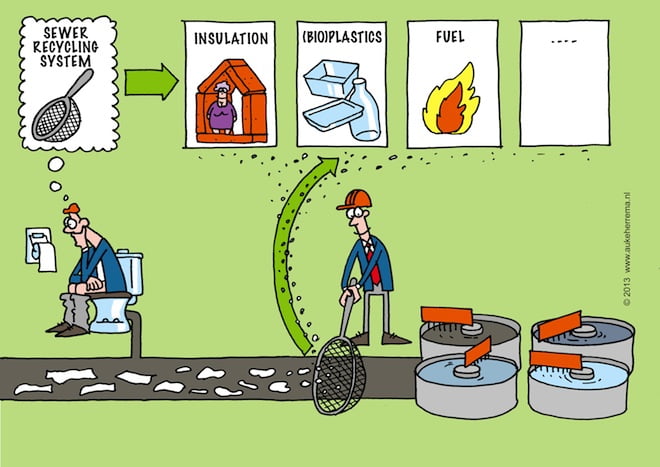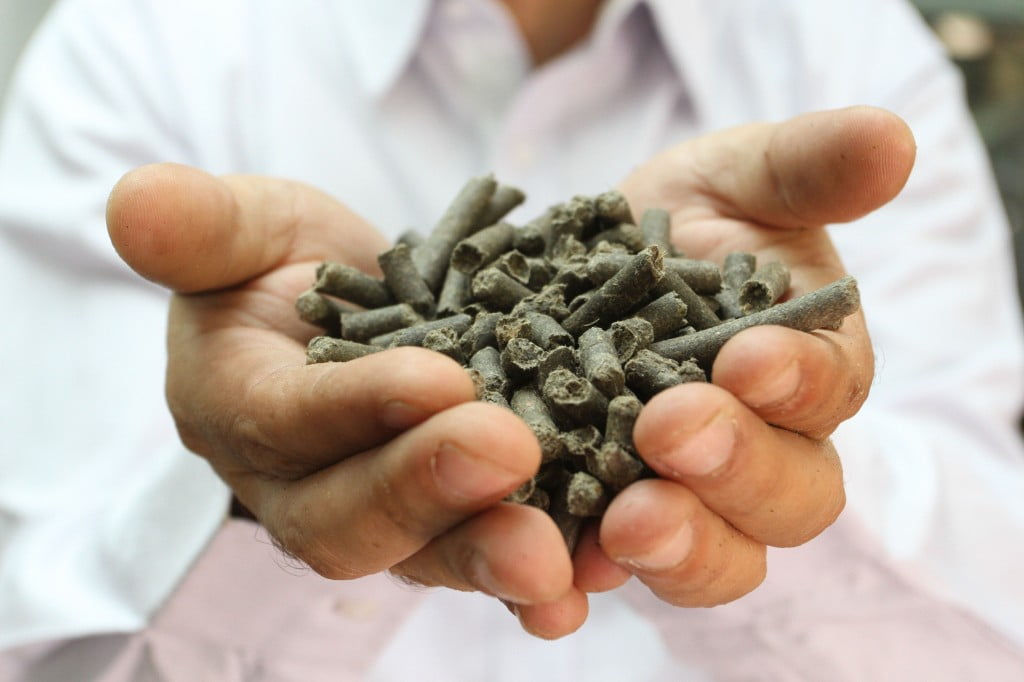This article was first published on The Times of Israel and was re-posted with permission.
To the untrained eye, it looks like trash, but rest assured, says Israeli environmental start-up Applied Cleantech (ACT), “there’s gold in that garbage.”
In a new crowdfunding effort, the company is seeking to raise millions of dollars to expand its cellulose harvesting activities, creating a $200 billion a year market — more than Google — by converting sewage into an economic asset.
ACT’s Sewage Recycling System (SRS) technology enables water treatment plants to bypass the production of sludge by extracting the solid waste before the recycling process begins. Sludge, that mixture of waste and water that is left over after the usable water has been “mined” from sewage, is useful as fertilizer, or, in some situations, as a fuel source.
SEE ALSO: TaKuDu: Using The Power Of Math To Solve The World’s Water Leaks
 In most cases, sludge needs to be disposed of by incineration or dumping in a landfill. Instead, said company CEO Dr. Refael Aharon, ACT’s technology recycles the biosolids in sludge, which constitutes up to 50% of the material, into a product called Recyllose — recycled cellulose.
In most cases, sludge needs to be disposed of by incineration or dumping in a landfill. Instead, said company CEO Dr. Refael Aharon, ACT’s technology recycles the biosolids in sludge, which constitutes up to 50% of the material, into a product called Recyllose — recycled cellulose.
This is a revolutionary commodity, says Aharon. Recyllose can be used to replace wood or processed plant materials in many products, including plastics, insulation, pulp and paper, construction, biofuel production and more. The system can save wastewater processing plants up to 30% on their operating costs, enable plants to handle 30% more sewage than they normally do, and even provide a source of income for governments and plant operators, who can sell the Recyllose to local manufacturers, pocketing the profit for themselves.
To continue reading this article on the Times of Israel site, click here.
Related posts

Resilient And Nutritious New Plant-Based Milk Aims To Make A Splash

Chocolate From Cultivated Cocoa Comes Without Environmental Toll

Plastic Fantastic: Startup Takes PVC Back To Its Crude Oil Roots




Facebook comments